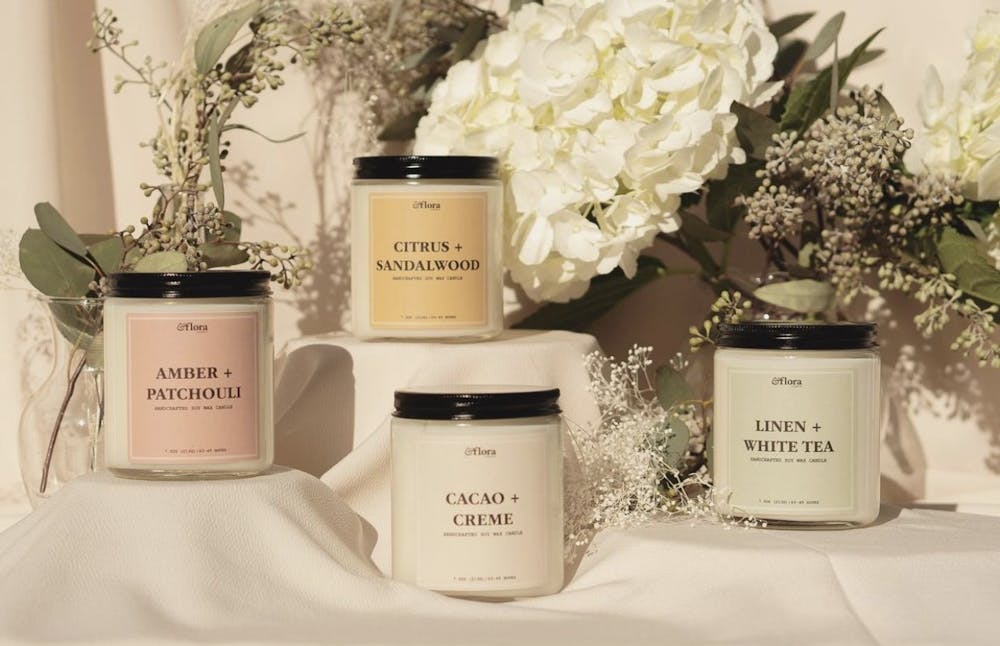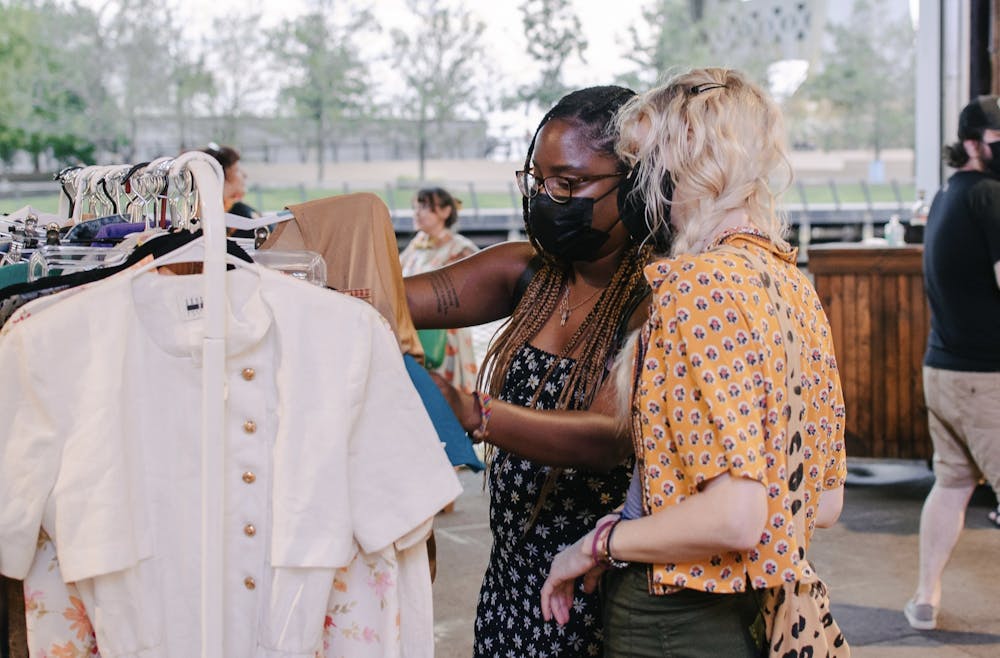Although climate change has gained more mainstream public attention in recent years, the meaning of terms like sustainability and eco–friendly have become increasingly nebulous. Many of the reasons for this issue aren’t mere coincidence. For years, greenwashing has been used as a tactic by corporations who co–opt the language of sustainability for advertising purposes, while failing to make actual changes to their environmentally unsustainable business practices, and continuing to cause material harm to the environment and marginalized communities across the world.
Given this trend of greenwashing and eco–capitalism, Zissel Aronow, the organizer of the Feminist Flea Market, was initially wary of hosting a sustainability–centered event. But through months of careful planning, collaboration, and learning, they helped curate Feminist Flea’s first–ever sustainability focused market, titled “A Sustainable Marketplace.” The upcoming event is a collaboration between the Feminist Flea Market and Grant Blvd, a sustainable Black woman–owned fashion brand.
Although the market is aptly scheduled for Earth Day weekend, the Sustainable Marketplace was actually an idea formed by Aronow and Kimberly McGlonn, the Founder and CEO of Grant Blvd, three years prior. The pandemic unfortunately delayed their original plans, but Aronow and McGlonn continued to keep in touch over the years, and the two organizers decided that 2022 was the moment to finally bring their vision to reality.
Feminist Flea has organized multiple flea markets in the past, each highlighting artists marginalized for their gender and prioritizing Black, Indigenous, people of color, and transgender vendors. This mission hasn’t changed for the new Sustainable Market, but it’s the first time that Feminist Flea is collaborating with another organization to host an event explicitly focused on sustainability. Aronow says the friendship between themself and McGlonn, and the exciting momentum they gained over the course of the pandemic, was what kept the idea for the market going. The two organizers wanted an event that would push the boundaries of what people know about sustainability and climate justice and demonstrate the possibilities for a better world.
In a recent press release for the event, McGlonn highlights the importance of bringing together collective visions to build regenerative, sustainable futures. “This marketplace is one chapter in a long journey to organize organic responses to climate catastrophe and centuries of institutionalized marginalization,” she says. For Aronow, sustainability also means holding corporations and the state accountable for their outsized impact on the planet and forming mutual relationships—both with other people and with the places we inhabit. “I think building consciousness around caring for the environment builds organizing power,” they say. “It builds interconnectedness and new senses of community and belonging in the city.”
At its core, the Sustainable Marketplace is about recognizing how critical the situation is around climate change while uplifting the work of local makers, movers, and organizers who are envisioning a way forward. In line with this vision, half of the market’s entry fees will go to the Urban Creators, a collaborative platform situated in North Central Philadelphia that utilizes food, art, and education to nurture resilience and self–determination in their neighborhoods. A series of activations, workshops, and panel discussions led by climate justice organizers will also be taking place during the market event, with the goal of provoking education, conversation, and direct action.
All of the vendors of the Sustainable Marketplace center sustainability as a fundamental aspect of their business. This is no exception for Aseeli Coleman, the founder of &Flora Studio, a brand that offers handcrafted soy wax candles and home goods.

Coleman takes care that she is intentional with every aspect of her small business—from the language she uses to frame her brand to the materials she sources to make her products. For one, Coleman says her brand is eco–conscious instead of eco–friendly because she feels like eco–friendly implies that a business has no impact on the environment, which is extremely difficult to do when making a new product.
Therefore, Coleman is mindful of the waste that her business creates by using responsibly sourced materials: recycled glass jars, Forest Stewardship Council–certified wooden wicks from the wood of already–to–be cut down mature fruit trees, and soy wax derived from soy beans with farming practices that can be traced, among a myriad of other considerations. “I feel more comfortable saying eco–conscious because every decision that I make in my business is done with being conscious of the environment and [the] impact[s] on [it],” Coleman says, being transparent that there are other sustainable practices she aims to implement or improve in her business moving forward.
She says being part of the Sustainable Marketplace has rekindled the idea of community for her as she saw how many vendors had cultivated great communities around their work and in connection to the earth. She hopes to bridge this gap more in her own business—looking back to the initial inspirations of &Flora and the future Coleman envisions for her brand. As the name suggests, &Flora is an ode to Coleman’s love for flowers and flora, and their ability for storytelling and generating community. “The goal was to always bring that into my business somehow,” she says. “Candles were my way in to start testing the waters, and now I want to really bring [&Flora to] its foundation.”
Coleman’s work, and the work of all the participating vendors and organizers, is indicative of the radical reimagining that the Sustainable Marketplace dedicates itself to. “Part of what feels exciting about the market is that there's like a lot of different entry points into what sustainability can look like,” Aronow says. They ultimately want those who attend the event to leave feeling inspired, and with a greater understanding of what work can be done in our communities to build a future that is safe and restorative for all of us.

